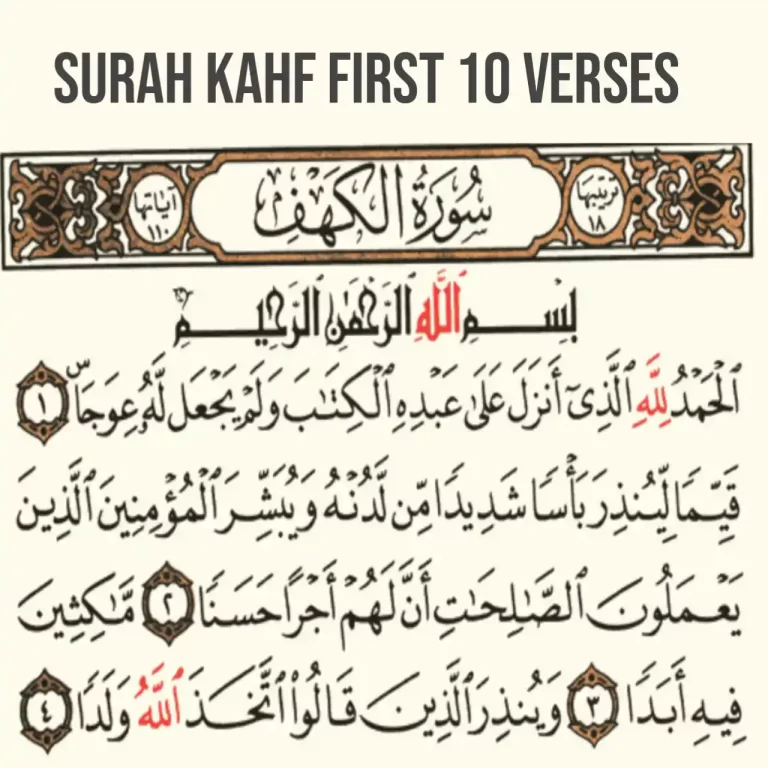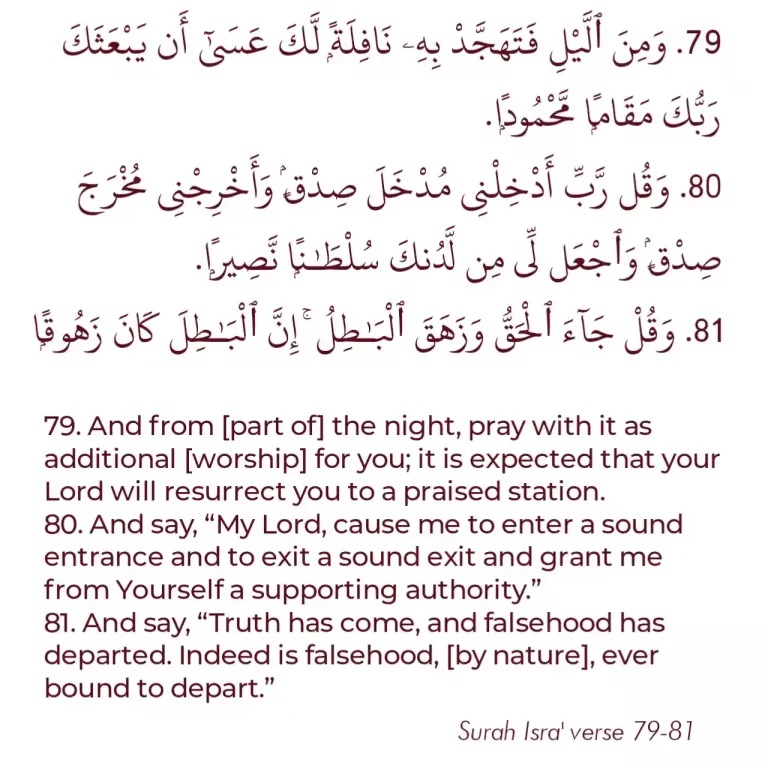Alhamdulillahi Rabbil Alamin Meaning, Benefits And Arabic Text
Alhamdulillahi Rabbil Alamin is a beautiful Islamic phrase and the second verse of Surah Fatiha, the first surah in the Quran. This phrase has a vast meaning and benefits. And, in this post, we will be looking at the meaning and explanation from some Muslim scholars.
Advertisements
Alhamdulillahi Rabbil Alamin Arabic Text
Here is how to write Alhamdullilah Rabbil’alamin in Arabic:
الْحَمْدُ لِلَّهِ رَبِّ الْعَالَمِينَ
Alhamdulillahi Rabbil Alamin Meaning in English
The translation and meaning of the phrase Alhamdulillahi rabbil Alamin is “All praise and thanks are for Allah, the lord of all creations”.
How Many Times Repeated Alhamdulillahi Rabbil Alamin in Quran?
Alhamdulillahi Rabbil Alamin is repeated six times in the Quran. The places are:
Advertisements
- Surah Fatiha verse 2
- Surah Al An’am verse 45
- Surah Yunus verse 10
- Surah Saffat verse 182
- Surah Zumar verse 75
- Surah Ghafir verse 65

Explanation By Sheikh Ibn Uthaimeen
“All praise and thanks” (al-Ḥamd): This word الْحَمْدُ (al-Ḥamd) is used only to describe someone, out of love and honor, with complete perfection of self, attributes, and actions.
So, Allah is perfect in his self, his attributes, and his actions. This praising, however, must be with a condition, it must be made with love and honor.
The people of knowledge say that simply describing someone with perfection yet not out of real love and honor for the praised one is not called حَمْدُ (Ḥamd).
Rather, in that case it would only be called (Madḥ) (a lesser degree of praise or admiration). Therefore, this (second) type of praising occurs often from people while they may not really love the one they are praising.
Often, they only want to gain something from them. For example, some poets stand before their government leaders and recite poetry of amazing praiseworthy descriptions of them yet void of any real love for them.
Advertisements
The poets’ love is for the wealth they are given or they do this out of fear of the leaders. On the contrary, our praise for our lord is a form of praise out of love and honor.
So, “All praise and thanks” is to praise the one described with total perfection out of love and honor for him.
The (al) in (al-Ḥamd) is inclusive, meaning that it includes all forms of praise and thanks.
Advertisements
See also: Allahu La Ilaha Illa Huwal Hayyul Qayyum Transliteration, Arabic, And Benefits.

“Are for Allah” (lillāhi): The (li) is to show possession and a sense of deserving.
The name “Allah” is the proper name of our lord Azzawajal and no one else is given this name; it means the one god that is worshipped out of love and honor.
“The lord” (Rabb): The word “lord” here includes three main descriptions: the creator, the owner, and the controller of all affairs. So, he is the creator of all that exists, the owner of all that exists, and the controller of everything.
“of all creations” (al-‘Ālamīn): As for the word “‘Ālamīn”, the scholars say it refers to anything and everything other than Allah.
Everything else besides Allah is described with this word because the very existence of everything is a sign or indication (in Arabic: Ālam) that they have a creator (سبحانه وتعالى).
In every form of creation there is a sign indicating the existence of its creator, his capability, wisdom, mercy, power, and the rest of his attributes of lordship.
Benefits of Alhamdulillahi Rabbil Alameen
One of the beneficial points we gain from this verse is the affirmation of praise of perfection to Allah. This is shown by the “al” in the word “al-Ḥamd” because this definite article in Arabic grammar is inclusive to include all forms or praise and gratitude.
It also shows that Allah alone deserves all forms of praise and gratitude. For this reason, the prophet (SAW) used to say whenever something happened he was happy with:
الحَمْدُ للهِ الَّذِي بِنِعْمَتِهِ تُتِمُّ الصَّالِحَات
Meaning in English: All praise and thanks are for Allah by whose favor righteous deeds are fulfilled.
And he would say when if something did not please him:
الحَمْدُ للهِ عَلَى كُلِّ حَالٍ
Meaning in English: All praise and thanks are for Allah in all situations.
Another point of benefit from the verse is the description of Allah with his sole right to worship first before describing him with his lordship.
This is either indicated because the name “Allah” is his proper name, specific to him and the source of all the rest of His names; or it is due to the fact that the people the messengers were sent to used to only deny Allah’s sole right to worship.
Most of the people did not deny Allah’s lordship (that he is the creator, owner, and controller of everything).
This verse also proves Allah’s complete lordship over all of the creations due to his statement: “The lord of all creations.”
Explanation From Tafsir Ibn Kathir
Al-Hamd be to Allah, the Lord of all that exists.
Abu Jafar bin Jarir said,
“The meaning of Al-Hamdu Lillah (all praise and thanks be to Allah) is: all thanks are due purely to Allah, alone, not any of the objects that are being worshipped instead of Him, nor any of His creation.

These thanks are due to Allah’s innumerable favors and bounties that only He knows the amount of.
Allah’s bounties include creating the tools that help the creation worship Him, the physical bodies with which they are able to implement His commands, the sustenance that He provides them in this life, and the comfortable life He has granted them, without anything or anyone compelling Him to do so.
Allah also warned His creation and alerted them about the means and methods with which they can earn eternal dwelling in the residence of everlasting happiness. All thanks and praise are due to Allah for these favors from beginning to end.”
Further, Ibn Jarir commented on the Ayah, Al-Hamdu Lillah, that it means,
“A praise that Allah praised Himself with, indicating to His servants that they too should praise Him, as if Allah had said,
`Say: All thanks and praise is due to Allah.’
It was said that the statement,
Al-Hamdu Lillah, (All praise and thanks be to Allah), entails praising Allah by mentioning His most beautiful Names and most honorable Attributes. When one proclaims, `All thanks are due to Allah,’ he will be thanking Him for His favors and bounties.”
The Difference between Praise and Thanks
- Hamd is more general, in that it is a statement of praise for one’s characteristics, or for what he has done.
- Thanks are given for what was done, not merely for characteristics.
The Virtues of Al-Hamd
Imam Ahmad bin Hanbal recorded that Al-Aswad bin Sari said,
“I said, `O Messenger of Allah! Should I recite to you words of praise for My Lord, the Exalted, that I have collected!’
He said, Verily, your Lord likes Al-Hamd.”
An-Nasa’i also recorded this Hadith.
Furthermore, Abu Isa At-Tirmidhi, An-Nasa’i and Ibn Majah recorded that Musa bin Ibrahim bin Kathir related that Talhah bin Khirash said that Jabir bin Abdullah said that the Messenger of Allah said,
The best Dhikr (remembering Allah) is La ilaha illallah and the best supplication is Al-Hamdu Lillah.
At-Tirmidhi said that this Hadith is Hasan Gharib.
Al before Hamd encompasses all Types of Thanks and Appreciation for Allah. The letters Alif and Lam before the word Hamd serve to encompass all types of thanks and appreciation for Allah, the Exalted.
A Hadith stated,
اللَّهُمَّ لَكَ الْحَمْدُ كُلُّهُ وَلَكَ الْمُلْكُ كُلُّهُ وَبِيَدِكَ الْخَيْرُ كُلُّهُ وَإِلَيْكَ يُرْجَعُ الاَْمْرُ كُلُّهُ
The dua means O Allah! All of Al-Hamd is due to You, You own all the ownership, all types of good are in Your Hand and all affairs belong to You.
The Meaning of Ar-Rabb, the Lord
Ar-Rabb is the owner who has full authority over his property. Ar-Rabb, linguistically means, the master or the one who has the authority to lead.
All of these meanings are correct for Allah. When it is alone, the word Rabb is used only for Allah. As for other than Allah, it can be used to say Rabb Ad-Dar, the master of such and such object.
Further, it was reported that Ar-Rabb is Allah’s Greatest Name.
The Meaning of Al-`Alamin
Al-Alamin is plural for Alam, which encompasses everything in existence except Allah. The word `Alam is itself a plural word, having no singular form.
The Alamin are different creations that exist in the heavens and the earth, on land and at sea. Every generation of creation is called anAlam.
Al-Farra and Abu Ubayd said, “Alam includes all that has a mind, the Jinns, mankind, the angels and the devils, but not the animals.”
Also, Zayd bin Aslam and Abu Muhaysin said, Alam includes all that Allah has created with a soul.”
Az-Zajjaj also said, “Alam encompasses everything that Allah created, in this life and in the Hereafter.”
Al-Qurtubi commented, “This is the correct meaning, that the Alam encompasses everything that Allah created in both worlds.
May Allah grant us success. Ameen
Advertisements







2 Comments